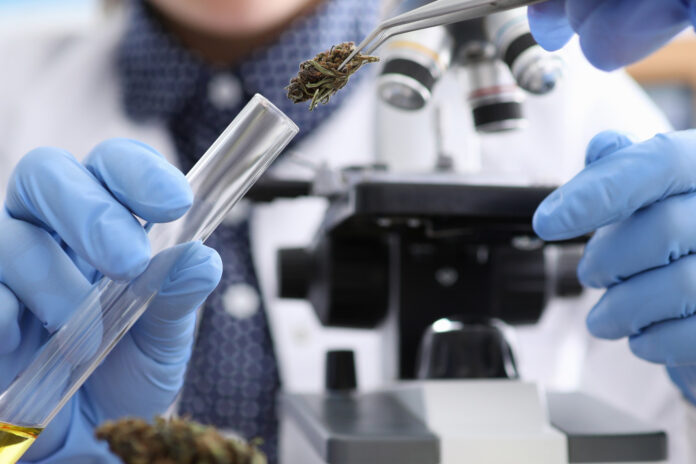Choosing a safe CBD source is one of the most important elements, if not the most important, in kick-starting your business. Finding a credible CBD supplier allows you to confidently share the details about your CBD sourcing with consumers and will help ensure the product you are creating is consistent.
Following passage of the 2018 farm bill that legitimized hemp farming and processing, there has been an increase in hemp CBD product manufacturing in the United States. More CBD products are available for those seeking benefits, but an abundance of quantity can lead to a loss of quality. As we continue to grow as an industry, how can we make sure our CBD is free of harmful additives and safe for consumers?
Importance of careful sourcing
It is crucial to source your CBD from a partner you trust and can easily work directly with to answer any questions you may have. The farm bill and the industry’s exponential growth generated an overabundance of CBD in the marketplace. Although we want CBD and its benefits available to everyone who seeks it, we also need to make sure it is completely safe.
Since CBD has become so lucrative, many farmers have begun farming hemp to supplement or replace what they farmed for generations, such as cotton, soybeans, or fruits and vegetables. Loose regulations have allowed improper farming practices to arise, such as using pesticides or processing the hemp incorrectly, and this is why knowing the source of your hemp and working with someone knowledgeable about the product and the proper growing/extracting practices is important. As you look for a trusted supplier, making sure the supplier is domestic will enable you easily to trace all your products back to the farm where the hemp was originally grown. Ensure the farmers are using responsible farming practices and the soil is pre-tested for toxins; hemp absorbs everything in the soil.
Top considerations for sourcing
As you begin narrowing down suppliers in the CBD supply chain, the next step should be to conduct an independent, third-party test of the hemp. The test should look for heavy metals, molds, pesticides, percentage of cannabinoids, THC percentage, and terpenes. Additionally, it’s important to see firsthand (by visiting the farms) how the product is farmed and processed. Since the Food and Drug Administration doesn’t monitor hemp manufacturing, making sure your CBD is safe and correctly labeled falls on you. A quality, trustworthy CBD product begins with the supplier.
Red flags
There are several red flags to look out for when choosing a supplier for your quality product. If the supplier does not offer testing or only tests for one ingredient, that is a major sign their product is not processed safely or correctly. It is also important to consider in which country the hemp is processed. Although sourcing from an outside country may be more cost-effective, you may be sacrificing product quality. Sourcing domestically also helps ensure your CBD meets U.S regulations. Since marijuana remains illegal in many parts of the U.S., it is essential to have documentation the CBD compound was not derived from hemp with a THC content of higher than .3 percent. Regulatory compliance is easier to monitor when the supplier is domestic.
A supplier that is not transparent about documentation raises another red flag. As you search for sources, ask them for a copy of their processor license to make sure they’re complying with all processing standards and protocols.
As we carve the future of CBD and patiently wait for more rules and regulations from the FDA, we as CBD business owners must do our due diligence to guarantee we are offering quality products to consumers. Taking your time and adequately researching suppliers will benefit you in the long run as your business continues to grow.
 Betsy Scanlan is co-founder and head of product innovation at The Good Patch, which manufactures state-of-the-art patches release CBD steadily and consistently over an eight- to twelve-hour period. Scanlan began participating in the medical cannabis industry as an investor in 2012 through The Arcview Venture Capital Fund and remains an active investor and participant in the process of gaining legislative approval for the use of medical marijuana in Tennessee. Previously, she founded and served as chief executive officer of The Downing Group, which develops over-the-counter products integrating CBD into gels, creams, and patches in order to reduce inflammation, pain, fatigue, nausea, anxiety and loss of appetite for those undergoing chemotherapy or radiation treatments.
Betsy Scanlan is co-founder and head of product innovation at The Good Patch, which manufactures state-of-the-art patches release CBD steadily and consistently over an eight- to twelve-hour period. Scanlan began participating in the medical cannabis industry as an investor in 2012 through The Arcview Venture Capital Fund and remains an active investor and participant in the process of gaining legislative approval for the use of medical marijuana in Tennessee. Previously, she founded and served as chief executive officer of The Downing Group, which develops over-the-counter products integrating CBD into gels, creams, and patches in order to reduce inflammation, pain, fatigue, nausea, anxiety and loss of appetite for those undergoing chemotherapy or radiation treatments.


